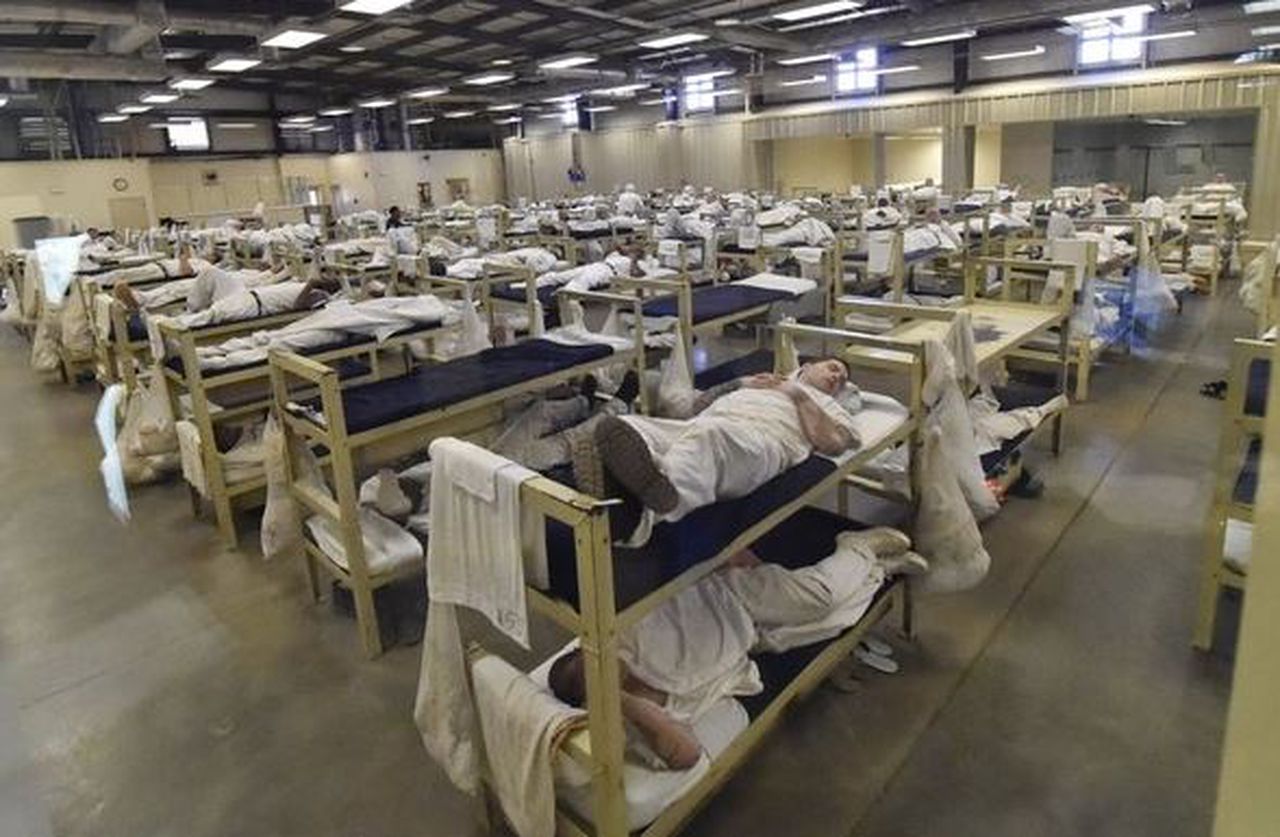Roy S. Johnson: Early release of 369 may be most compassionate, smartest act ever by Alabama’s janky prison system
This is an opinion column.
Releasing 369 Alabama men and women who are two to eight months from paying their debt to society is a good thing. For them, certainly.
For us, too.
It’s a compassionate thing. It’s also a smart thing.
Yet when word leaked earlier this week—thanks to the diligent reporting moxie of my colleagues Carol Robinson, Ivana Hrynkiw, and Mike Cason—that the state Department of Corrections was launching the release on Tuesday, in accordance with a law originally passed in 2015 and amended in 2021, some folks lost their lunch.
Foremost among them, our by-the-book-but-rarely-for-the people Attorney General Steve Marshall, who, not surprisingly, opposed the law—as he does just about anything even remotely empathetic to citizens trying to transform their lives after being convicted of a crime and serving their time.
Around 300 of them have thus far been transported (some were delayed while victims’ families were notified) from correctional (is anything more misnamed?) facilities throughout the state and dropped at various bus stations primarily in Mobile, Montgomery, and Jefferson County, particularly Birmingham. Dropped with no money, no phone, with little more than a bag of clothes.
The release date (January 31, 2023) was established by a law few squawked about until freedom loomed.
“Anything that floods the state with dangerous offenders is something that causes me great concern,” St. Clair County Sheriff Billy Murray told us. Of course, Murray hasn’t likely met any of the men and women released (or at least not in many years), which makes him imminently qualified to deem them dangerous.
The releasees that first day were convicted of non-violent crimes. ADOC Commissioner John Hamm said no one serving time for a violent crime would be freed without victims being notified. Rightly so.
Marshall squawked, too. On Monday, he filed suit against Hamm—a restraining order Hail Mary that was slapped down by Montgomery Circuit Judge Jimmy Pool. On Tuesday, buses (and vans) rolled.
See more:
I don’t get the angst. The 369 represent only 2.07% of the latest count of the state’s grossly and inhumanely overcrowded prison population—17,883 inhabit a horrific system built for 12,115. That’s not exactly flooding the state, as Sheriff Murray hyperbolically claimed.
More like dropping one lifeboat from the Titanic.
These men and women would have all soon been free anyway. By releasing them early the state is able to shadow them with an ankle or wrist monitor through their EOS (end of sentence). Before being released, individuals had to let officials know where they would be living, according to Alabama Pardon and Paroles Executive Direct Cam Ward. With the monitors, the state can check on whereabouts anytime, day or night. The freed were assessed for any addiction or mental health issue, Ward added, and may be tested for drugs through EOS.
Many are also participating in a statewide recidivism program I wrote about last fall that seeks to lower the recidivism rate in the state by offering significant wrap-around services, including treatment for addiction and mental health, as well as skills training and job placement.
“It’s really common sense,” Ward told me at the time. “It’s just pulling all the pieces together. We have a lot in the private sector say hey, we need to hire people, can y’all help get skilled labor? We can take care of that.”
They’re reporting recidivism rates (returning to custody within three years of release) of just 3 percent among participants, a stunning drop from Alabama’s historical 30 percent rate overall.
Indeed, Rep. Jim Hill, a Republican from Moody, AL who sponsored the 2021 bill, notes that most crimes by previously incarcerated individuals occur within the first year of release. “I would like for us to do the best we can to prevent recidivism,” he told us. “And one way we do that is to have them monitored and under supervision for a period of time after release from prison.”
All the squawking about the release of the 369 – and Marshall’s legal maneuvering – overlooked its benefits and realities. And its humanity.
Best of luck to the 369 who stepped off the bus or van this week and into the next phase of their lives. May they never return—for their sake.
And ours.
More columns by Roy S. Johnson
Shame of the ‘skinfolk’ who killed Tyre Nichols is all on them, and policing
Replace our rusted NASA rocket with…
Now, perhaps Selma will be seen and restored.
For one man, Birmingham’s tiny home initiative to address unhoused is emotional
Roy S. Johnson is a Pulitzer Prize finalist for commentary and winner of the Edward R. Murrow prize for podcasts: “Unjustifiable,” co-hosted with John Archibald. His column appears in The Birmingham News and AL.com, as well as the Huntsville Times, and Mobile Press-Register. Reach him at [email protected], follow him at twitter.com/roysj, or on Instagram @roysj.
